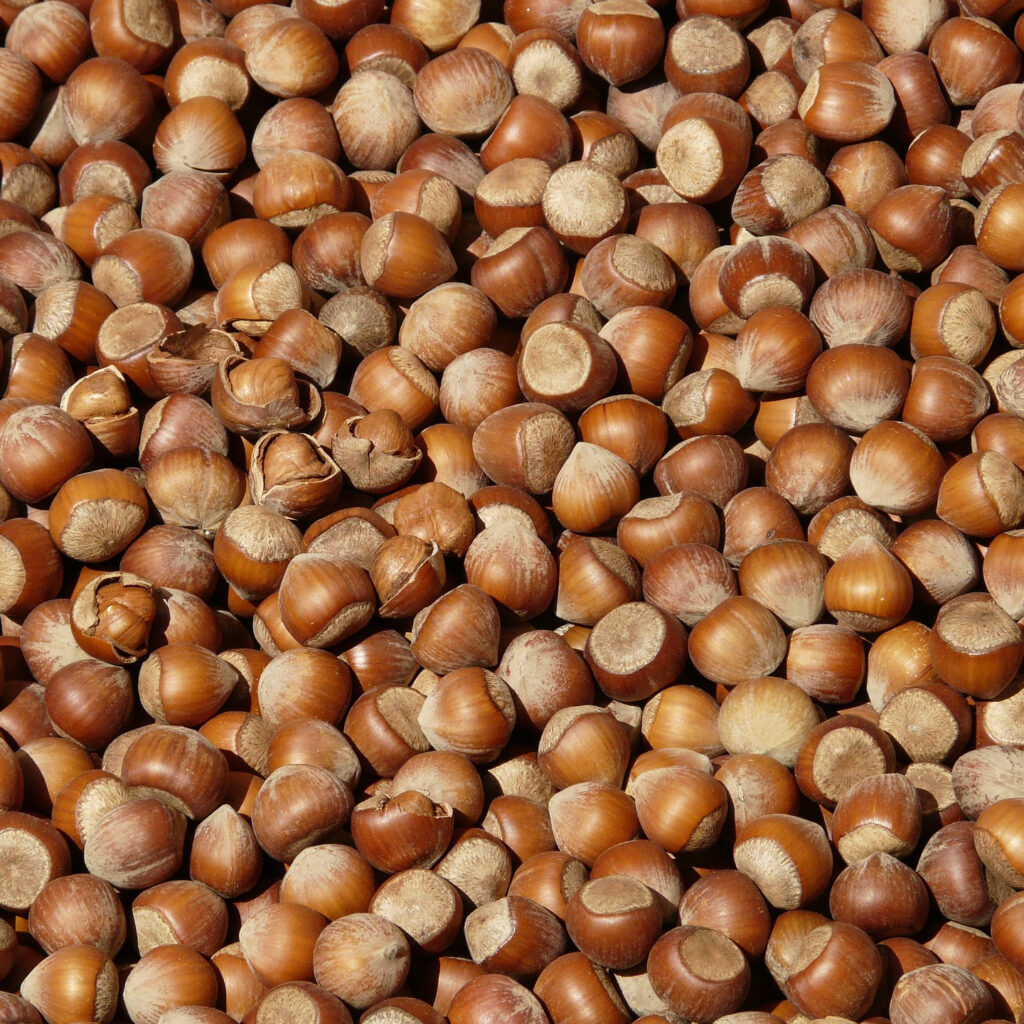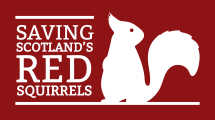Original Author: Alexa Seagrave
We often get asked about feeding red squirrels, and the very best thing you can do is make your garden as wildlife friendly as possible.
Planting native shrubs and small trees for berries and nuts will provide the best natural food for free and give the best nutrition. So get out there and plant some hawthorn, blackthorn, holly, cherry, raspberry, crab apple and yew. All small-seeded broadleafed trees will provide buds and flowers in spring for squirrels as well as giving a home to lots of other wildlife and insects.
If you have squirrels visiting your bird feeders, it is vitally important to regularly clean and disinfect them. This is especially important if you have grey squirrels in your garden. We recommend stopping feeding, if grey squirrels are around, as visiting feeders leads to a high risk of spreading squirrel pox virus. Please don’t feed grey squirrels!
If you want to give red squirrels a helping hand over winter and spring, here are our hints and tips for providing the best food.
What should I feed them?
- Squirrels will quite happily pillage the nuts and seeds from your garden. It is best to feed a variety of different foods, similar to those that the squirrel might encounter in the wild, with a few added extras in small amounts.
- The most suitable foods for red squirrels are hazelnuts in their shells, wheat, unsalted peanuts and sunflower seeds.
- A suitable mix is:
4 parts peanuts
1 part sunflower seeds
1 part whole maize.
- Beech nuts, sweet chestnuts and pine nuts are also excellent, if you can afford them.
- Red squirrels may suffer from calcium deficiency if eating a diet rich in peanuts or sunflower seed, so try to provide an alternative calcium source such as ‘Collo-Cal D’ added to a dish of drinking water, bone meal added to the dry feed mix, or a cuttlefish, bone or antler placed near to the feeder. This is especially valuable during summer for juvenile and female squirrels.
- Apples and carrots can also reduce the chances of calcium deficiency occurring, and are an important part of the food you provide.

Things to watch out for
- Avoid sweet, dried foods such as raisins and sultanas, as these can cause calcium deficiency.
- Cats account for a high number of fatalities in gardens visited by squirrels. Make sure that food isn’t scattered on the ground but is placed as high as possible – a good feeder location is against a wall or tree so that the squirrel doesn’t have to cross open ground, and can escape easily.
- Make sure that the feeder and food are kept as clean as possible. Regular monthly scrubbing of feeders with detergent and changing any leftover feed before it goes mouldy can help to achieve this. Spray with a pet-safe or bird-safe disinfectant (obtainable from pet supplies or the RSPB) before refilling with food.
- Provide a source of water if it is not naturally available.
When should I feed squirrels and how often?
Sometimes red squirrels can become dependent on supplementary food. Try to avoid feeding them in such amounts that they don’t need to look elsewhere! It is best to feed small amounts every 3 or 4 days. This way, you can provide enough to help keep the squirrels alive until autumn, but you will not encourage them into bad habits.
In the wild, red squirrels feed on shoots and flowers in spring, and nuts, seeds from cones and fruits in autumn and winter. The critical period to feed them is therefore during the summer months before fruits, conifer seed and nuts are ripe, when their natural food is in short supply. In autumn when plenty of natural food is available, the squirrels may stop coming to your garden, but they will probably return in the winter. Continued feeding throughout the winter will also provide an additional boost to the squirrels in your area.
What should I do if grey squirrels come to my garden?
- If grey squirrels start appearing in your garden for the first time, please contact your local squirrel group. You should not feed grey squirrels, so you may need to stop all feeding.
- Special feeders that provide food for red squirrels but prevent access to grey squirrels can help to tip the balance in favour of red squirrels. Make sure that food spillage is not feeding grey squirrels inadvertently.
- If you have wild birds which rely on your food supply and can’t stop feeding them, try to avoid laying feed down in the same place every day, and clean feeders regularly to minimise the risk of spreading disease.
Suppliers
Most suitable foods are available from online suppliers, garden centres, farm suppliers, supermarkets and health food shops. Pet food shops may also supply mixtures containing some or all of the recommended foods, sold for pets such as chipmunks.
- If you know of anyone else feeding squirrels, please pass on this information, or ask them to contact their local squirrel project officer.
